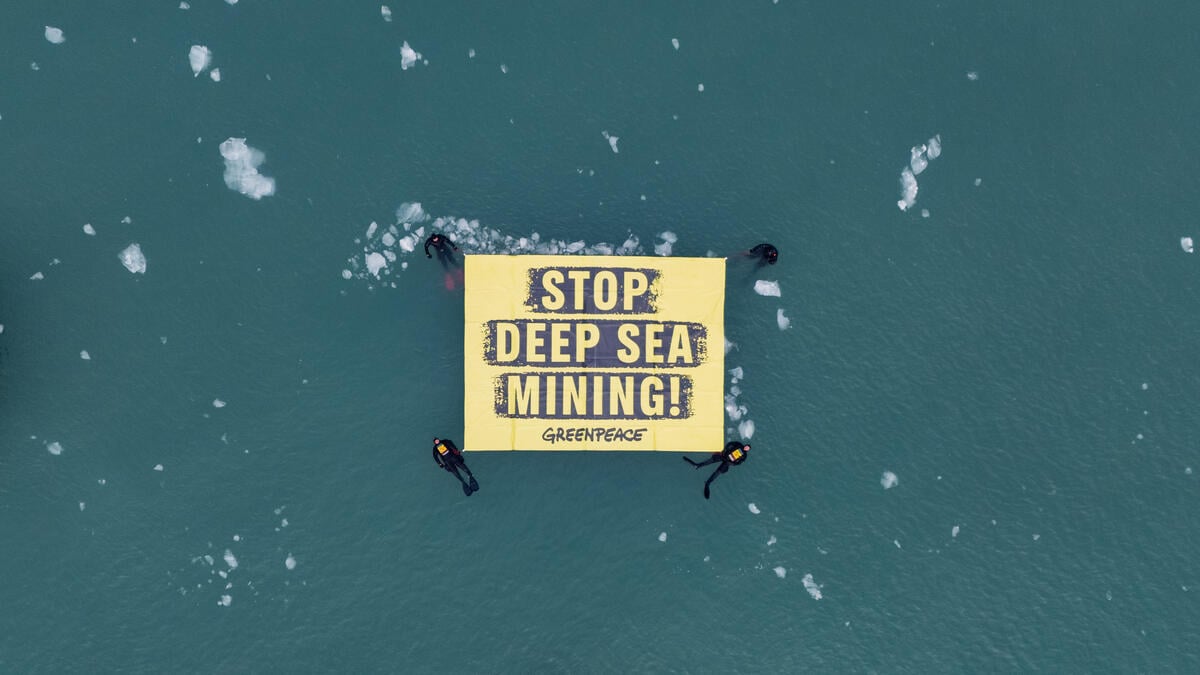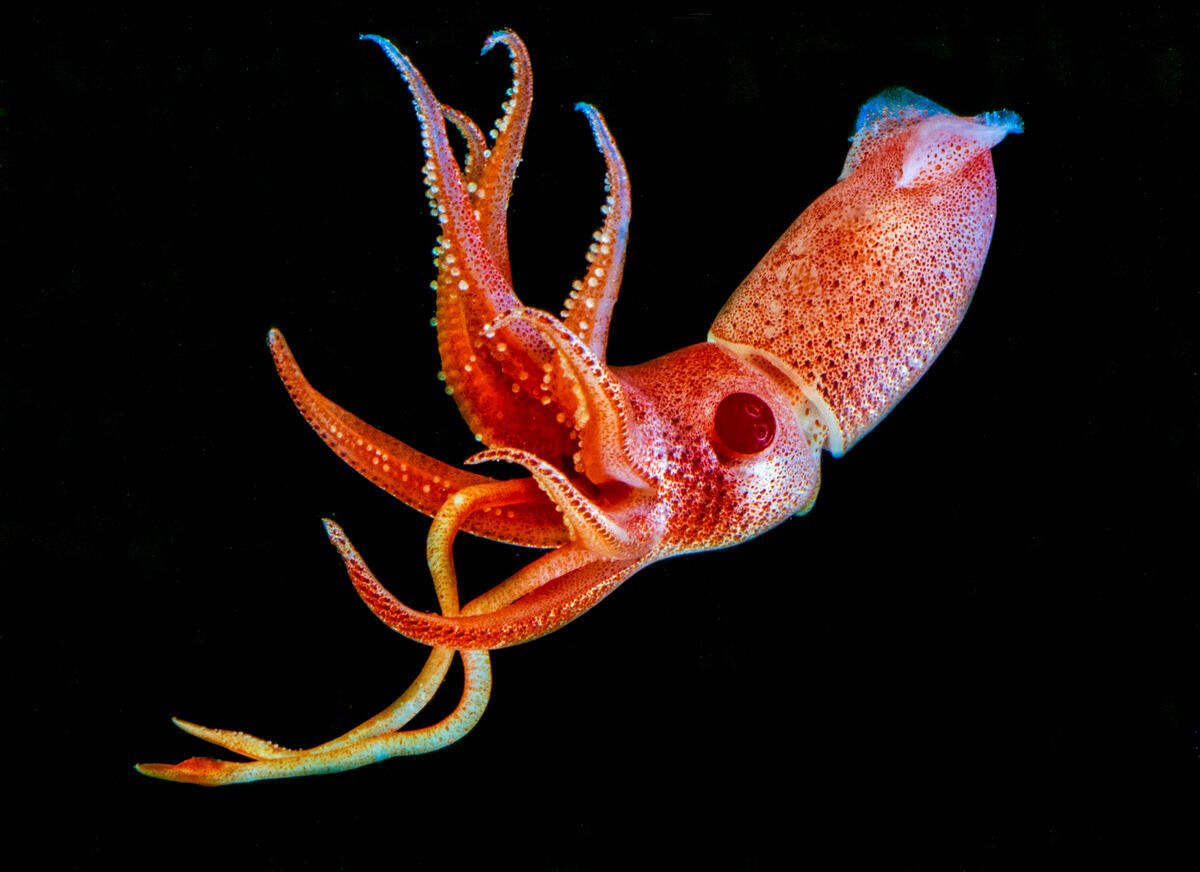The International Seabed Authority (ISA) is fast-tracking regulations that could allow the deep sea mining industry to begin operations as early as July 2023. The regulations are being discussed at a meeting starting today in Kingston, Jamaica. An alliance of Pacific nations, along with scientists, youth groups, and civil society organizations, are calling for a moratorium on the industry, which could wreak havoc on one of the world’s most fragile ecosystems and exacerbate climate change.

The International Seabed Authority (ISA) is fast-tracking regulations that could allow the deep sea mining industry to begin operations as early as July 2023. The regulations are being discussed at a meeting starting today in Kingston, Jamaica. An alliance of Pacific nations, along with scientists, youth groups, and civil society organizations, are calling for a moratorium on the industry, which could wreak havoc on one of the world’s most fragile ecosystems and exacerbate climate change.

KINGSTON, JAMAICA (July 18, 2022) – The International Seabed Authority (ISA) is fast-tracking regulations that could allow the deep sea mining industry to begin operations as early as July 2023. The regulations are being discussed at a meeting starting today in Kingston, Jamaica. An alliance of Pacific nations, along with scientists, youth groups, and civil society organizations, are calling for a moratorium on the industry, which could wreak havoc on one of the world’s most fragile ecosystems and exacerbate climate change.
The ISA, which has been criticized for its lack of transparency, accountability, and inclusivity, is proceeding with the meeting to fast-track regulations despite concerns raised by member states and civil society organizations that it has severely limited participation by impacted countries and communities in this critical dialogue. The ISA has already issued exploration contracts to 31 contractors, which will be able to begin commercial exploitation once regulations are adopted.
Greenpeace USA project lead on deep sea mining Arlo Hemphill, who is attending the meeting, said: “The International Seabed Authority’s mandate is to protect the seafloor as the ‘common heritage of humankind.’ But in its rush to launch the deep sea mining industry, the ISA has put the interest of a few mining corporations over the well-being of our planet and the billions of people who depend on our oceans. The ISA’s restrictions on this meeting have essentially silenced the voices of millions of people in one of the most consequential discussions about the future of our planet, including those who would be most affected by this destructive industry. It is unacceptable.”
The Jamaica Climate Change Youth Council said: “Now more than ever, it is imperative that civil society and community organizations participate in the conversations and the decisions about issues that will ultimately affect our lives. Transparency in the decision-making process is essential, as it is the citizens’ job to hold our leaders accountable and help to shape the future we want. Jamaica is on the front line of the climate crisis. It is us and our children who will suffer the most, so we need to shout the loudest. The JCCYC calls for a moratorium on deep sea mining, and we intend to ensure that our voices are a part of the conversation.”
Scientists have warned that deep sea mining may lead to irreversible biodiversity loss, disturbance of one of the world’s largest carbon sinks, and damage to fragile ocean ecosystems, which provide benefits such as medicines and fisheries.
The Pacific nations of Palau, Fiji, Samoa, and Micronesia, citing concerns about the impact the industry would have on the health of the ocean and the lives and livelihoods of Pacific Peoples, recently launched an alliance calling for a moratorium on the sector’s development. Chile also recently submitted a letter to the United Nations Convention on the Law of the Sea calling for a 15-year moratorium on the nascent industry. Over 200 members of Parliament from 47 different countries have also called for a moratorium on deep sea mining.
The support for a moratorium on deep-sea mining by leading technology and EV companies Rivian, Renault, BMW, Volkswagen, Volvo Group, Scandia, Google, and Samsung SDI raises the question among the public and investors about whether a market for these minerals will exist at all. The United Nations Environment Programme Finance Initiative has urged investors to avoid the industry.
Hemphill continued: “For far too long, corporations have been allowed to destroy our planet and reap the profits while the less powerful bear the burden of their actions. The ISA should not be seeking to join them. We have had enough. This time, we have an unprecedented opportunity to stop a new extractive industry before it starts. We call upon the delegates who have been privileged enough to participate in this meeting, to uphold the commitments they have made in other forums to protect the ocean and support the call for a moratorium on this nascent industry. We also encourage more corporations to make a stand that considers the wellbeing of people and the planet.”
The Jamaica Climate Change Youth Council continued: “As the generation that will inherit the climate crisis, the JCCYC recognizes our responsibility to be stewards of the world that we live in, and that future generations will hopefully live in. We firmly stand against deep-sea mining and are committed to ensuring that our future is protected. To begin a blind treasure hunt for a brand new non-renewable resource is an irresponsible choice fueled by greed and power, and the argument that deep-sea mining provides the only route to a renewable future is simply misinformation.”
###



